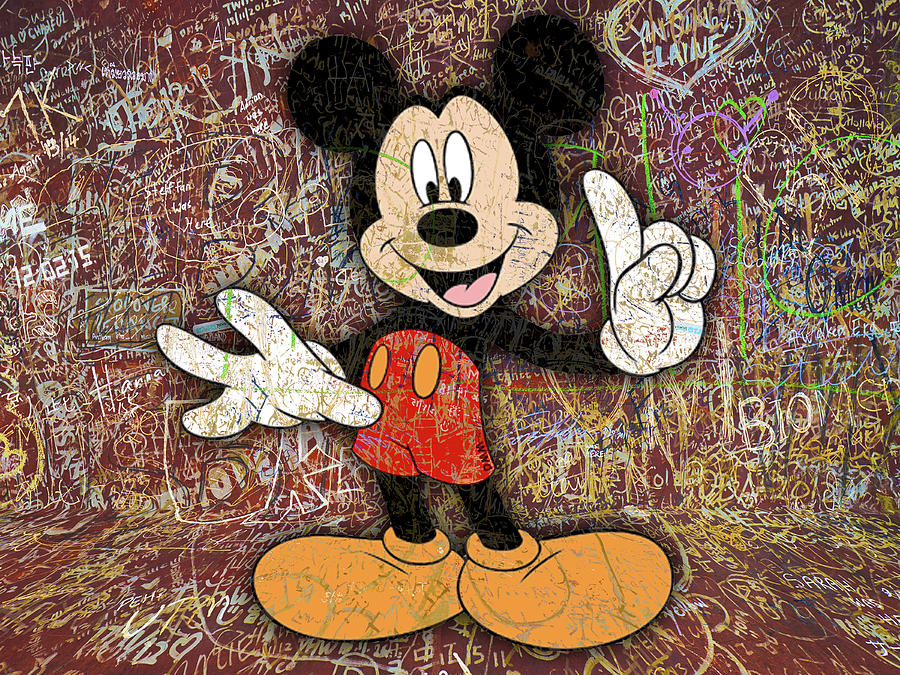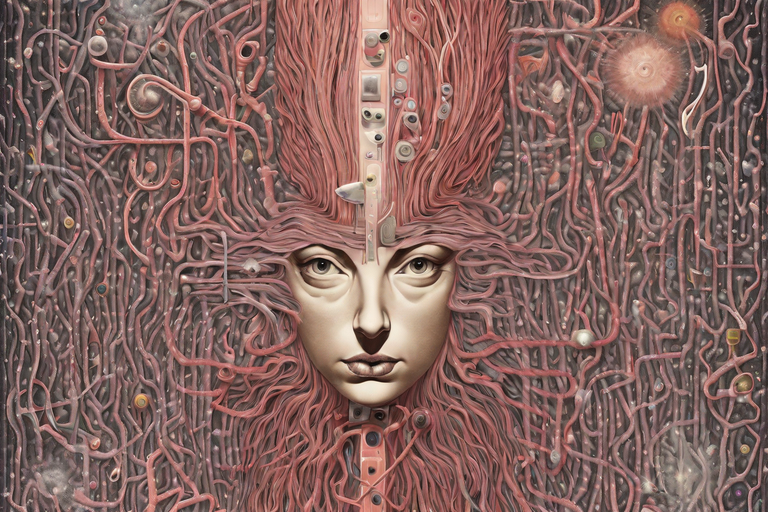There is a kind of a jinx that tends to be thrown into us at a very early age and that jinx has to do with the way in which our core understanding of life becomes distorted and falsified so that it becomes impossible to live naturally and simply, as we would do otherwise, in the absence of the jinx. As a result of this jinx live becomes essentially unlivable.
One way of talking about this jinx is to say that it arises out of the deep-seated assumption that we have to make the correct sort of effort, or demonstrate the correct sort of competency, before we can properly exist, before we can actually get to be. We have to prove ourselves first – we have to redeem ourselves from the unsatisfactory state of ‘non-existence’ or ‘non-being’ or else we will never make the grade. Of course we still exist when we don’t prove ourselves, when we don’t make the grade, but the point is that the type of existence we have then is of a very crappy and worthless type. The type of existence we have when we don’t manage to successfully make the right sort of effort is an ignominious one – it is an undistinguished type of existence that only serves to remind us that we have ‘failed’ the test of life. This is how we think about things after we have been jinxed by the type of crass socialization process it is that we are generally exposed to very soon after being born.
What the socialization process does to us is to implant a core assumption deep down in us that – in all probability – we are never ever going to question. We can explain this assumption by saying that it has to do with the way that we feel that we are losers (both in our own eyes and in the eyes of everyone else) unless (as James Carse says) we can prove otherwise. This is more than just a little bit like the doctrine of original sin – we are ‘born bad’ and we have to redeem ourselves from this taint by dint of our efforts and the suffering that attends these efforts. Or we could say that it is as if it is our first day at school and we are out there in the playground, where there are no teachers supervising. The ‘default situation’ in the playground is that all the other kids (or at least a fair proportion of them) are going to mock us and tease us and generally make a fool of us unless we can avert this by either mocking someone else first, or beating the guy up who is trying to make fun of us, or by having some kind of a way (maybe by being good at sports, etc) of not being the default loser. Unless we successfully assert ourselves, then we are stuck in the position of being the unredeemed ‘figure of fun’, both in our own eyes and the eyes of others.
This viewpoint might sound unusually harsh – and admittedly all school play-grounds aren’t quite as bad as this – but the principle that we’re talking about here holds good not just for the ‘school-yard socialization process’ but for society in general, all through our lives. The principle (which is aggressively reinforced at every turn) is that you are ‘a nobody’ – a laughable ‘nonentity’ – unless you can prove otherwise. It is the ego’s fear of being this ‘nonentity’ that drives us to try to better ourselves within the limited framework that society offers us. This is what we mean when we say we want to ‘make a name for ourselves’, when we say that we want to ‘be someone’, and so on.
On the one hand we could say that the unpleasant way of looking at things which we are referring to here is an unconscious belief that we have been infected with, a bit of ‘core programming’ that society instils us with in order to foster insecurity and therefore vulnerability to all of its numerous methods of manipulating us, but on the other hand we could also say that the basic, nuts-and-bolts dynamics of this situation (the situation of ‘being a loser unless we can prove otherwise’) are inherent in every single compulsion that comes our way. And compulsions are always coming our way!
Compulsions have this sort of a nature to them – this is how they work. If I am caught up in a compulsion then the perception that comes with this situation is that things are going to go badly for me if I don’t manage to successfully obey the compulsion, and that things will be much, much better if I do obey! On a rational level I have the very clear understanding that ‘it is bad when I don’t obey the compulsion and that it is good when I do’ and on the more basic level of feeling I experience considerable discomfort (or pain) when I don’t or can’t obey, which turns into relief (or pleasure) when I do. On both levels, the compulsion operates by inflicting suffering upon me, which it then (implicitly) promises to remove again if I do what it wants me to do…
Rationally-speaking, the compulsion translates into the understanding that if I fail to obey then this is ‘wrong’ and if I successfully obey then this ‘right’. The compulsion gives rise therefore to a break in symmetry, to a polarity with RIGHT on one side and WRONG on the other. What’s not to understand about this? This RIGHT/WRONG split is a handy little oversimplification of the universe that everybody understands – there’s nobody that can’t get the gist of the crude world-view that a compulsion is selling us!
So on the rational-intellectual level we have rule that splits everything up into the RIGHT WAY versus the WRONG WAY and on the more basic ‘comfort level’ (if we could call it that) we have a compulsion that splits the world into ‘pain’ versus ‘the relief of pain’ – which is as we have said a way of relating to the world that all of us understand very well indeed. So whilst life itself is not a simple black-and-white affair (but on the contrary the most profound of enigmas) when life gets turned into compulsion it actually is. When life gets turned into a compulsion then everything gets very banal, very ‘matter-of-fact’. All we have to do is try hard to make sure we ‘get it right’ and then we get the big pat on the back. All we have to do is ‘solve the problem’ in the terms that the problem presents itself to be solved and then its ‘thumbs up all around’. Everything is GREAT, everything is A1…
So the point we’re making here is that a compulsion is implanted via the process of socialization (which is where we are compelled to adapt to a common structure) deep into our unconscious minds such that ‘living life’ gets confused with (or replaced by) ‘successfully obeying the compulsion’. We can truly live, or truly exist, only if we ‘win at the game’, so to speak. This isn’t unconditional being, it is conditional being, it is ‘being-just-so-long-as-we-satisfy-the-stipulated-conditions’. We are only granted being if we play the game right and the game – in itself- is only some arbitrary bit of nonsense which we are obliged to take seriously. This is the jinx that we get saddled with as a result of socialization, therefore. The way Alan Watts explains this is to say that life has at this point become serious for us – it is no longer something that is freely engaged in, it is something that we have to do, and more than this, it is something that we have to do well at, succeed at according to someone else’s terms, etc. And as we have said, as a result of thinking that life is serious (like a task that has to be accomplished) the very nature of life gets distorted…
In this ‘distorted modality’ of living life is turned into a prize that has to be won. Life is made into something that has to be aimed for, it has been turned into something that we talk about, think about, dream about rather than something we live. It has become something to be planned for, hoped for, yearned for, etc, but not something that one actually has. In this modality life is now ‘a goal’ – which is to say, it is something that has to be achieved as a result of successful controlling. So what all this means is that as a result of ‘the jinx’ that has been perpetrated upon us we live in our minds, we live in our mental representations rather than in reality, and as a result life itself has become no more than a mental construct.
What we are talking about here is a ‘jinx’ because the more we try to obtain life (or ‘win’ it) the further away from it we get. Naively, we might think (or rather we do think!) that if we accomplish the various tasks correctly then we will win the prize, that if we follow the steps given then we will finally get to be. Or to put this another way, we might think that if we struggle and strive hard enough, then one fine day we will come to the end of our struggling and striving, and we will then enter into ‘the promised land’, so to speak. Whichever way we put it, what we are talking about fits into the general, all-purpose schemata for a compulsion: things are crappy now but if I try hard enough (if I tick all the appropriate boxes) then someday everything will be great!
This simply isn’t the case however – the best we can ever hope for with a compulsion is a temporary relief from the little devil who is sticking us from behind with his pitch fork. It’s like scratching an itch – there is momentary relief when we scratch, but before long it’s back again, worse than ever. Scratching relieves the itch (temporarily), but at the cost of aggravating the underlying condition. Or we could say that trying to get rid of a compulsion by doing what the compulsion wants us to do is like servicing an addiction – we obtain the momentary flash of euphoria when we satisfy the craving, but only at the price of strengthening the underlying addiction. We’re trading short-term relief for long-term suffering, in other words…
So when life gets substituted for by a compulsion, it becomes an addiction – it becomes an unholy mass of itches that we just have to scratch. In this addictive or compulsive version of life, we trade in our freedom for the fantastic prize that we think we are going to get if we do this. This is the nature of the deal that we have cut. In the intoxication that descends upon us when we imagine the good feeling that’s going to come our way if we play ball with the addiction, we think nothing of giving away our freedom – we give it away in an instant. If we had paused for a moment to consider carefully what this deal entails however we might not have been so quick to shake hands on it. We give away our freedom for some prize that is supposed to be so very fantastic, so very marvellous, but what prize is worth giving away our freedom for? Without freedom, what is anything worth? The so-called ‘prize’, the so-called ‘benefit’ is really just a two-dimensional lure to keep us running around and around on the treadmill…
Without freedom, whatever we are doing is an empty farce. Without freedom, nothing we do is worth anything. How can anything be worth anything if I’m not actually free in it? We can talk about the situation of having ‘zero freedom’ in terms of what happens when we replace unformatted reality with a simulation. In a simulation – naturally – everything is simulated. There is nothing that is not simulated, nothing that is not part of the simulation – it’s all provided for us by some external source, some external authority. This external source, this external authority tells us what we are to do and how we are to do it. It tells us what the prize is if we succeed, and it tells us what the penalty is if we fail. The external authority tells us how very important it is for us to do whatever it is that it is telling us to do; it tells us in no uncertain terms how good we will feel if we succeed and how bad we will feel otherwise. When we do successfully perform the job that our thoughts are telling us to do, then the external authority of our thoughts will tell us how great, how happy we are feeling, and when we fail our thoughts will inform us how terrible, how rotten, how lousy we are feeling. And because we believe the simulation to be real (which is to say, not a simulation) we will believe our thoughts! The simulation supplies absolutely everything about our situation therefore (including how we feel), and this is why there is precisely zero freedom in it.
We may seem to have taken a bit of a jump here from ‘compulsions’ to ‘simulations of reality’, but this isn’t as big of a jump as it might seem. Actually, all compulsions are simulations and all simulations are compulsive! The reason why all compulsions are simulations is because there is no compulsion in reality, and the reason simulations are always compulsive is because there is no reality (i.e. no freedom) in a simulation. A simulation is always a promise of reality, a promise of freedom, not the thing itself, despite the fact we may (and generally do) take it to be the real thing. What this means in practice is that we are always looking forward to living, but not actually doing it! As Alan Watts says, the good thing is always coming, always coming, always just around the corner, but never actually here. Or we could say that life (or freedom) is always coming, always coming, always just around the corner, but never here. This is why James Carse says that in finite games our play is only a means to obtain life, not life itself. We don’t live to play, we play to live…
Playing as a means to obtain life (when the undisclosed truth is that the game never ends, and will never lead anywhere apart from to itself) is the hall-mark of the simulation. This is what a simulation is all about. The constant message (or implication) that ‘the good thing is coming, the good thing is coming’ is what the simulation is all about. Obviously the good thing isn’t here, isn’t now, or else what would be the reason to play? In the game (in the simulation) ‘where we are right now’ is always just a blank. It has to be just a blank. The simulation cannot supply more than just a blank. It can’t supply freedom, after all – it can’t supply the actual reality. The simulation can promise anything under the sun, but that’s all it can do.
If we believe that the good thing is always coming, is always just around the corner, then its up to us to strain for it, to struggle for it, otherwise we just won’t get it. It’s coming, but we have to play the game correctly. We have to satisfy the conditions. Trying hard to win the game is therefore the thing to do, whether we’re doing this by engaging in some sort of goal-orientated activity, or whether we’re doing it in our imaginations, by wishing that we were somewhere that we’re not, by hoping for the good thing to happen.
This struggling and straining, this fighting and trying, this hoping and yearning is the very thing that jinxes us however. It is supposed to allow us to obtain life, to obtain existence, to obtain the status of genuine being, but it has the exact opposite effect. The more we strain for the good thing, the more we try to get our grasping hands on it, the more we hope and yearn for it, the further away from us it runs.
The harder we try (the more engaged in the game we get) the more we distance ourselves from what we are really playing for. The faster we run towards it the further away from us it runs. The cleverer we get in our attempts to snare it the further away from us it runs. The more desperately we yearn for it the further away from us it runs. We are as Chuang-tzu says ‘beating a drum in search of a fugitive’ – or as Alan Watts puts it in The Book on the Taboo Against Knowing Who You Are, we are ‘driving to a police raid with sirens on’.
The reason for the self-defeating futility of our struggle is that the ‘good thing’ which we are straining so hard to obtain (the fugitive we are chasing) was with us all along. Life was where we were all along, not somewhere else. The glasses we were searching high and low for were on our nose the whole time! The good thing isn’t ‘coming’, it isn’t ‘just around the corner’, its here already. As long as we’re driven by our greed for ‘the good thing’ however we’ll never ever it’ll elude us forever…






